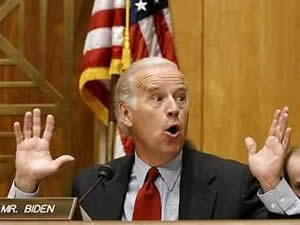 (AKI/Jakarta Post) - Activists in the Indonesian province of West Sumatra have protested against a police raid on the Al-Qiyadah Al-Islamiyah Islamic sect. The police carried out the raid on the orders of the Indonesian Ulema Council (MUI), Indonesia's top clerical body. The sect claims it has been under attack in several parts of the country, including West Sumatra and West Java, since the council declared it blasphemous on Thursday and demanded the government ban it. (AKI/Jakarta Post) - Activists in the Indonesian province of West Sumatra have protested against a police raid on the Al-Qiyadah Al-Islamiyah Islamic sect. The police carried out the raid on the orders of the Indonesian Ulema Council (MUI), Indonesia's top clerical body. The sect claims it has been under attack in several parts of the country, including West Sumatra and West Java, since the council declared it blasphemous on Thursday and demanded the government ban it.
The Pusaka Inter-Community Study Center, a non-governmental organisation promoting pluralism in West Sumatra, has called for the public to respect an individual's rights to practise their religion and beliefs. "Labelling a group's teachings as blasphemous and then attacking them is against the Constitution," said Pusaka director Sudarto in an interview with The Jakarta Post. "The police and the Indonesian Ulema Council should refrain (from doing so) and solve the matter wisely," said the director.
Last week, members of several large organisations, including the Indonesian Mujahidin Council, visited the shop-house in Padang where the sect, led by 44-year-old Dedi Priadi, operates. They ordered the worshippers to stop their activities before raiding and sealing the building. Police detained 11 alleged Al-Qiyada members, including Dedi, in order to prevent "clashes". The sect members were eventually released, although Dedi has been ordered to report to the police every day and the building has been secured with a police line.
| The chairman of the Indonesian Ulema Council Maruf Amin said people needed to be wary of Ahmad Moshaddeq's teachings because he said he was the next prophet after Muhammad... The MUI has said that any followers of the sect would be considered apostates. |
In Bogor regency, West Java, police sealed off two villas belonging to Al-Qiyadah's founder Ahmad Moshaddeq or Haji Salam on Friday to prevent any attacks on the property. The chairman of the Indonesian Ulema Council Maruf Amin said people needed to be wary of Ahmad Moshaddeq's teachings because he said he was the next prophet after Muhammad. Maruf said that the sect did not regard daily prayers, fasting or the pilgrimage to Mecca as compulsory. The MUI has said that any followers of the sect would be considered apostates.
Sudarto, who is also a member of the West Sumatra chapter of the National Commission on Human Rights, said the government should stay neutral. He said sealing off the sect's building and requiring its leader in West Sumatra to report to the police over a personal issue was against human rights. "The state has again used the Criminal Code against the sect for tarnishing a mainstream religion," said Sudarto. "The Criminal Code should not be placed above the Constitution, which guarantees people the freedom to perform their own religions and beliefs," he said. He said the accusations against the sect should be solved through dialogue.
Dedi Priadi claims to have 4,000 followers in West Sumatra, mostly students. In his teachings, he says praying once a day at night, instead of five times, is enough, but denies the sect is blasphemous.
Gusrizal Gazahar of the West Sumatra chapter of the Indonesian Ulema Council said they have monitored the sect for some time and had even sent two people inside the organisation. "The sect is misleading and not Islam. But it claims to be Islam so we ask the government to ban it and call the people involved to get back on the right track," Gusrizal said. The West Sumatra provincial prosecutor's office released a decision banning Al-Qiyadah Al-Islamiyah on Friday. |
 ."
." ...46th president of the U.S.
...46th president of the U.S. 
 (AKI/Jakarta Post) - Activists in the Indonesian province of West Sumatra have protested against a police raid on the
(AKI/Jakarta Post) - Activists in the Indonesian province of West Sumatra have protested against a police raid on the  THE spiritual head of
THE spiritual head of  The radical
The radical